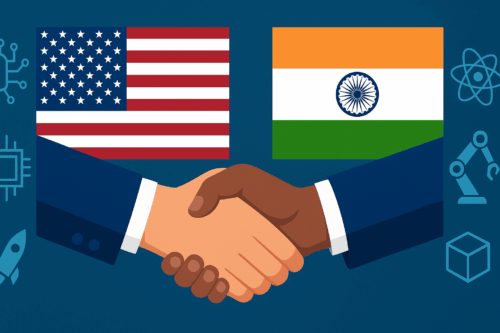
How Will This New Development Unfold For India?
Amid rising trade tensions between India and the U.S., eight venture capital and private equity firms from both countries have come together in an unusual pact. The group, called the India Deep Tech Investment Alliance, has pledged more than $1 billion over the next decade to back Indian deep tech startups.
Breaking from Tradition
Investors usually compete fiercely for deals. This move is different. The firms — including Accel, Blume Ventures, Celesta Capital, and Premji Invest — have agreed to pool resources and create a long-term support system for deep tech founders in India.
Instead of informal co-investments, the alliance sets a rare example of formal collaboration. Members will not only invest but also provide mentorship, access to networks, and expansion support.
A Timely Push for India’s Deep Tech
The announcement follows the Indian government’s ₹1 trillion Research, Development, and Innovation (RDI) scheme. The program aims to accelerate growth in areas such as AI, semiconductors, space, robotics, quantum, biotech, and climate tech.
India has talent and ambition in these areas, but most startups with global potential often incorporate in the U.S. For the first time, the government requires local incorporation for incentives, pushing global investors to back Indian-domiciled companies.
Tariffs and Tensions in the Background
The timing of this alliance is notable. Only weeks earlier, U.S. President Donald Trump imposed a 50% tariff on Indian goods over New Delhi’s purchase of Russian oil. Analysts say this has strained relations between Trump and Prime Minister Narendra Modi.
Despite these challenges, investors are betting on India as a long-term hub for deep tech. They see value in building companies that can serve both domestic and global markets.
Long-Term Capital for Early-Stage Ventures
Under the alliance, each firm will commit funds for 5 to 10 years. The focus will be on early-stage startups, from seed rounds to Series B. Late-stage companies will remain outside the alliance’s scope.
Celesta Capital, which has backed Indian ventures like Agnikul (space tech), IdeaForge (drone maker), and OneCell Diagnostics (AI cancer diagnostics), spearheaded the initiative. Arun Kumar, managing partner at Celesta Capital, will serve as the alliance’s first chair.
A Collective Voice for Policy
Beyond investment, the alliance plans to act as a unified voice while engaging with the Indian government. Past policy changes without industry input have led to friction, sometimes forcing rollbacks after investor pushback.
With this alliance, the firms aim to avoid such conflicts and ensure smoother alignment with India’s innovation goals.
Looking Ahead
The billion-dollar pledge is just the beginning. Alliance members have hinted that more firms, including corporates with strong investment arms, may join in the future. Leadership of the group will rotate, ensuring shared responsibility.
As Accel partner Anand Daniel summed up, the conditions are ripe: “ambition, talent, policy intent, and patient capital.”
Over the next decade, India hopes to see homegrown startups building solutions for the world — supported by investors who, despite political rifts, are choosing collaboration over competition.
